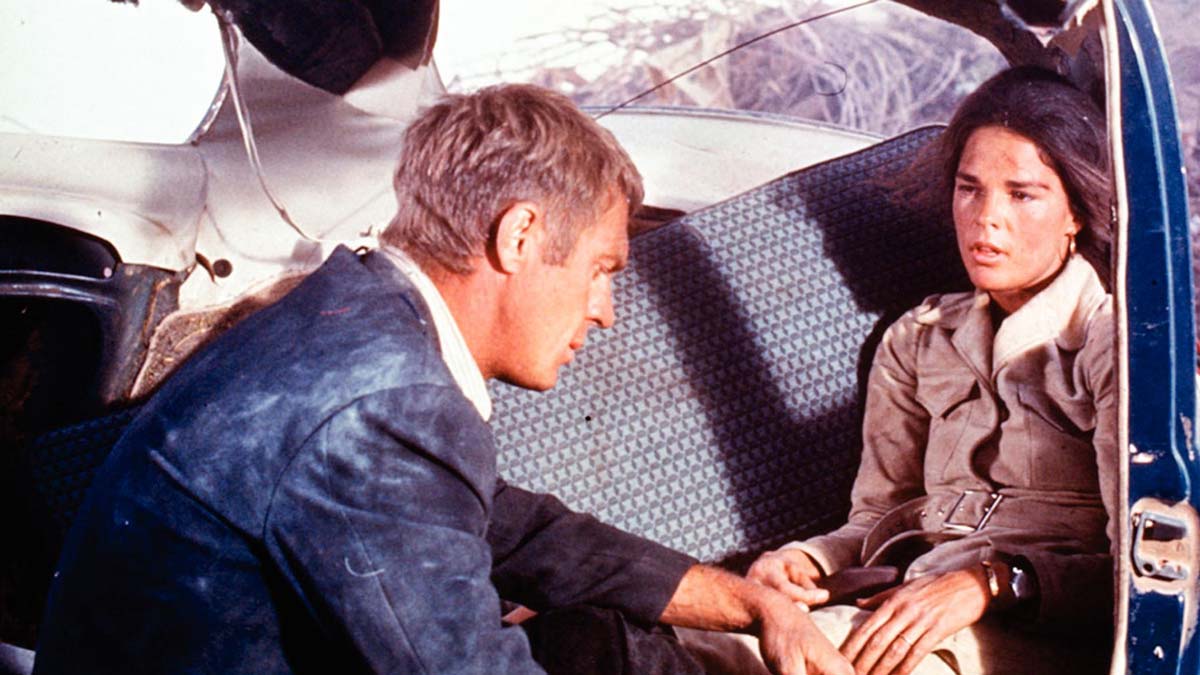
©2007 Warner Entertainment Inc. All rights reserved.
The Getaway, a love story about a broken couple by Sam Peckinpah
2021.02.01
“The Getaway” synopsis
Doc McCoy, a bank robber in prison, is released from prison earlier than planned after having his wife make a secret deal with a politician. The condition of the deal is to rob a bank. After being released from prison, McCoy and his friends manage to successfully rob a bank, but an unexpected chain of betrayal attacks McCoy.
Index
- Sam Peckinpah = ``A man's movie''
- Steve McQueen as a symbol of machismo
- What is the “masculinity” that McQueen emits?
- ``The Getaway'' is a love story about a couple getting back together.
Sam Peckinpah = ``A man's movie''
When people talk about Sam Peckinpah, they always want to use the word "man." A genius who depicts male friendship and male aesthetics. A filmmaker who poured out his love for outlaw and rough-and-tumble men and played a romantic elegy for men. Women probably don't understand Peckinpah's true nature. Some people say it's because it's a "man's movie."
In 1961, when the rise of Westerns as a genre was coming to an end, Sam Peckinpah, who made his debut as a film director with ``The Wild The Wild Bunch '' (1969), delivered the final blow to Hollywood Westerns with ``The Wild Bunch'' (1969). . After that, there was `` Straw Dogs '' (71), in which Dustin Hoffman played a man who awakens to violence, and `` Billy the Kid '' (73), a Western drama that became a hot topic and also featured Bob Dylan. He created many masterpieces until his death in 1984 , including `` Garcia's Head '' (1974) starring Warren Oates, which is full of blood and rot, and `` The Cross of Iron '' (1977), his only war movie. .
Peckinpah's name has always been associated with gossip. He committed countless acts of brutality on set, exceeded the budget and filming period, and was a nuisance who continued to clash with the production company every time he produced a work. A crazy person who was repeatedly married and divorced, addicted to alcohol and drugs, and died. A master of violent movies filled with violence and blood. These words lead Peckinpah to become a symbol of ``man's cinema.''
“The Wild Bunch” trailer
Peckinpah's films were hailed as ``men's movies,'' and the articles that questioned this were written a long time ago. This is ``Peckinpah's Women'' by film critic Ikuko Ishihara, which was included in the mook book ``e/m books vol.10 Sam Peckinpah'' (Esquire Magazine Japan) published in 2001.
In this wonderful piece of writing, she explains that she understands men's desire for movies that only they can understand. If you want a place to hide from women so you can feel superior, that's fine too. But that doesn't mean, he says, ``If you can only use a Peckinpah movie to that extent, it's pretty boring.''
``The Women of Peckinpah'' acknowledges that the women in his films, including ``The Wild Bunch,'' have always been merely accessories to men, but he also acknowledges that his films break away from conventional stereotypes by portraying complex women. He also points out that he has created . Indeed, in Peckinpah's films, women are often beaten, kicked, and raped by men. In particular, the way lewd women (those labeled as such) are treated is extremely harsh. While we can talk about how The Wild Bunch is a masterpiece, we'll all be awkwardly silent about the way the Mexican prostitutes are treated here.
“The Getaway” preview
Still, it is true that Peckinpah brilliantly portrayed the "fighting woman." Hildy in `` Desert Drifter/The Ballad of Cable Hogue '' (70) and Amy in ``Straw Dogs'' are wonderfully shaped. Above all, the woman named Carol, played by Ali MacGraw in ``The Getaway'' (1972), never fits into the convenient heroine image prepared for men. She is a woman who carries a gun and fights as much as her husband. She is proud and uses her sexuality to its fullest, but she never hands over the right to use it to men.
Citing examples of women with such depth, ``The Women of Peckinpah'' concludes as follows: Peckinpah's films certainly tend to neglect women. However, ``he was still fair to women in his own way.''

